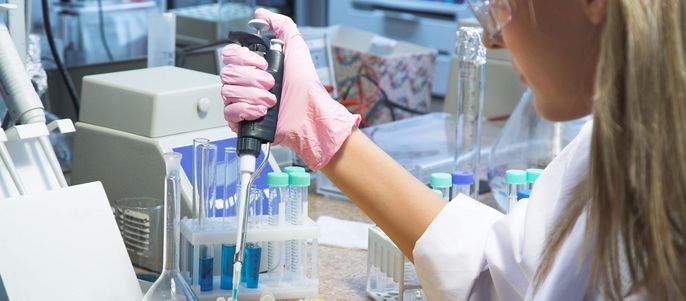Urine is diluted if you drink a large amount of fluids before the urine test. This becomes apparent when the creatinine value is less than 20 mg/dl. In this case, the urine test cannot be used. You should therefore not drink more than 500 ml of fluids in the three hours before the sample is collected.
We will contact you the day before the sample must be provided by text message or telephone. Therefore, please make sure that you check your text messages every day while the abstinence monitoring program is ongoing. They may also be sent at weekends or on national holidays. If you do not turn up to your appointment even though we have summoned you, the monitoring program must be terminated.
The number of days that you are allowed to be absent and therefore unavailable for urine tests is limited (for example, 56 days in a monitoring program that lasts one year).
Absences include all times that you are not available to provide urine samples. You must inform us of foreseeable absences (for example due to job-related reasons or vacations) three working days in advance. For absences due to illness, you must provide a doctor’s note or certificate of incapacity for work (AU-Bescheinigung).
But please remember that absences due to illness also count toward the number of days you are allowed to be absent. If you exceed the number of days you are allowed to be absent, the monitoring program must be terminated.
If necessary, longer expected absences can be covered through a supplementary hair analysis – get in touch with us to discuss this!
If, for job-related reasons, you are often unable to answer a summons at short notice, a monitoring program using urine tests is not suitable and you should possibly decide to use hair analyses instead.
Do not drink more than 200 ml in the last 1.5 to 2.5 hours before your urine sample is collected to ensure that the urine is suitable for use (see above: “Creatinine value – why is it important?”).
We recommend that you also avoid taking dietary supplements (also due to creatinine) as these could falsify results.
During the alcohol monitoring program, please also avoid consuming foods that contain alcohol (sauces, desserts, etc.) and also medication that contains alcohol (your pharmacist can advise you on alternative alcohol-free medications).
During a drug monitoring program, certain medications and products containing poppy seeds (poppy seed rolls, poppy seed cake) can falsify results. You should therefore avoid them plus the passive consumption of substances and the consumption of products containing hemp (including CBD products).
Both methods are accepted in equal measure for an MPA as long as they are performed in line with CTU specifications.
Of course, we comply with these stringent requirements. However, hair analyses and abstinence monitoring programs differ in terms of your planning needs and the date from which abstinence must be proven.
The advantage of hair analyses is that you can plan appointments yourself. You will not be summoned without warning and on short notice as you would be for urine samples in an abstinence monitoring program. If you do not have any hair available, urine samples are a good alternative.
Abstinence monitoring programs using urine samples can be started shortly after you start to abstain from consuming alcohol or using drugs. For hair analyses, we recommend waiting for a sufficiently long time (safety period) after the last date you consumed a substance. Talk to us – we will be happy to give you more information personally.
If you have already been abstaining from drugs and/or alcohol for a longer time, hair analysis allows you to provide evidence over a longer period. In the case of an abstinence monitoring program, however, you can only prove your drug and/or alcohol abstinence going forward.

